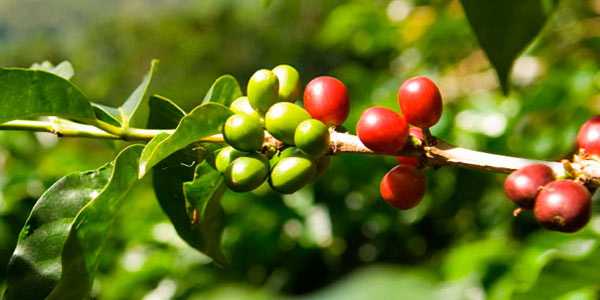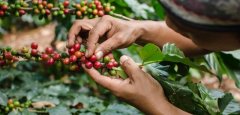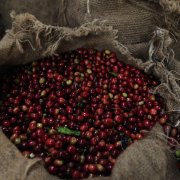Ethiopia Sunlight Sidama G1 Guji Region Lion King Coffee Flavor Taste Aroma Description

For professional baristas, please follow the coffee workshop (Wechat official account cafe_style)
Product name: Ethiopia Sunshine Sidamo G1 Lion King Valley producing area
(Ethiopia Sidamo Lion King Natural G1)
Flavor description: strong fruit aromas, cantaloupe, strawberries,
Peach, delicate blueberry aroma and fruity flavor
The texture is as soft as silk, highly fermented wine, typical
Sidamo's full-bodied coffee is sweet, Yuyun is good and sweetness is distant.
Country Ethiopia (Ethiopia)
Producing area Oromia Region
Guji (Guji Zone)
Producer: Sylvia Cooperative (Shilcho Coop)
1900 to 2300 meters above sea level
Variety Ethiopian Guyou original species (Heirloom)
Annual rainfall of about 1500 to 2, 000 mm (mm)
Soil: reddish brown
Treatment method of African scaffolding single layer slow sun drying treatment
Introduction:
Friends who like to bask in the sun in Ethiopia have another bean to choose from! Lion King (Lion King)
It can be said to be the most amazing quality micro-batch coffee in Guji Zone production area this year.
Strong aromas of tropical fruits, berries and flowers can be used to describe this bean.
The administrative region of Ethiopia is divided into four grades, the order from large to small is Region,
Zone, woreda, kebele, most of the place names of raw coffee bean producing areas follow this.
According to the rules of naming, the Guji producing area launched in this batch is located in the southeast of Yejia Sheffield, a well-known producing area.
The raw coffee beans belonging to Oromia Region → Guji Zone belong to the regional type in the division of administrative regions.
Just as Yejia Sheffield became well-known after becoming famous, it became the wide area Sidamo.
Independent secondary area Guji (Guji Zone).
This batch is produced near the town of Dara Woreda in Sidama province.
Produced by small coffee farmers in the Sirsa Cooperative (Shilcho Coop). The cooperative was established in 1976
Currently, it is SCFCU (Sidama Coffee Farmer), the cooperative federation of Sidama province.
Members of Cooperative Union). SCFCU is a large coffee cooperative in Ethiopia.
The Alliance, which currently has about 46 member cooperatives, is the second largest coffee in Ethiopia.
The Cooperative Alliance. At present, there are about 1200 small coffee farmers in Shilcho Coop.
Family, and have their own washing treatment plant.
The Sirsa Cooperative (Shilcho Coop) was founded in 1976 as the Dutch Red Cherry Project
One of the sponsors. The Red Cherry Project (Operation Cherry Red) is the Trabocca of the Netherlands
It is dominated by the company, and half of the funding is funded by the Dutch government. Since 2005
Trabocca of the Netherlands cooperates with many small coffee cooperatives in Ethiopia
Teach and help encourage small coffee farmers to improve post-processing techniques starting from the harvest of red fruits
Such as washing, sun or fermentation treatment to improve the quality management of coffee. Whenever in the harvest season
Trabocca will invite selected coffee farmers' organizations and producers to participate in the project.
Collect micro-batches of coffee (about 1500 to 3, 000 kilograms) and select them by hand in batches
100% ripe red coffee cherries (so called the Red Cherry Project). Finance provided by Trabocca,
Resources such as equipment and technology assist farmers and promise to actually follow the standard process (SOP) output.
The quality of the specifications up to the required standards will be purchased at an excellent price. The spirit of the plan
It's kind of like a contract.
Guji Zone has always been a production area worthy of considerable attention.
The development in recent years has also confirmed that the rise of Guji producing areas is indeed the development of Ethiopia in recent years.
One of the important trends. In addition to beans from larger producing areas, such as Humbela, Shaquiso, etc.
There are also excellent beans from a processing plant or even a single manor, which is a traditional Yega Xuefei producing area.
Beyond the reach of others. What's more, in terms of innovative treatments, there will be batches of honey treatment.
In addition to the recent focus of Gesha Village, the Guoji producing area has also become
An important hot spot. To understand the trends in Ethiopia, Guji can be said to be non-negligible.
Highlight.
Important Notice :
前街咖啡 FrontStreet Coffee has moved to new addredd:
FrontStreet Coffee Address: 315,Donghua East Road,GuangZhou
Tel:020 38364473
- Prev

Description of Coffee Flavor in Ethiopia Sunshine Sidamo G1 Valley Shakisuogesha processing Plant
For professional baristas, please follow the coffee workshop (Wechat official account cafe_style) Ethiopia Solar Sidamo G1 Valley Shakiso Giza processing Plant Lot7 (Ethiopia Sidamo Guji Shakiso Danbi Uddo Gigessa Natural G1 Lot7) Flavor description: grapes, orange berries, chocolate bread, sweet and sour juicy taste like maple syrup
- Next

Description of coffee flavor and aroma in Ethiopia sun Xidamo G1 Valley Giannasola Farm
Professional barista exchanges please follow the coffee workshop (Wechat official account cafe_style) Ethiopian Sun Sidamo G1 Valley Giannasola Farm single Farm Lot3 (Ethiopia Sidamo Guji Ana Sora Lot3 Natural G1) flavor description: strawberry biscuits, integrated berries, citrus, flowers, maple syrup aroma, sweet and bright acidity, mouth
Related
- Detailed explanation of Jadeite planting Land in Panamanian Jadeite Manor introduction to the grading system of Jadeite competitive bidding, Red bid, Green bid and Rose Summer
- Story of Coffee planting in Brenka region of Costa Rica Stonehenge Manor anaerobic heavy honey treatment of flavor mouth
- What's on the barrel of Blue Mountain Coffee beans?
- Can American coffee also pull flowers? How to use hot American style to pull out a good-looking pattern?
- Can you make a cold extract with coffee beans? What is the right proportion for cold-extracted coffee formula?
- Indonesian PWN Gold Mandrine Coffee Origin Features Flavor How to Chong? Mandolin coffee is American.
- A brief introduction to the flavor characteristics of Brazilian yellow bourbon coffee beans
- What is the effect of different water quality on the flavor of cold-extracted coffee? What kind of water is best for brewing coffee?
- Why do you think of Rose Summer whenever you mention Panamanian coffee?
- Introduction to the characteristics of authentic blue mountain coffee bean producing areas? What is the CIB Coffee Authority in Jamaica?

